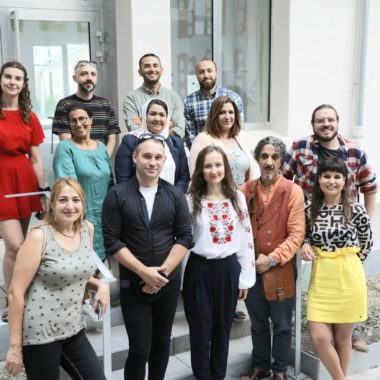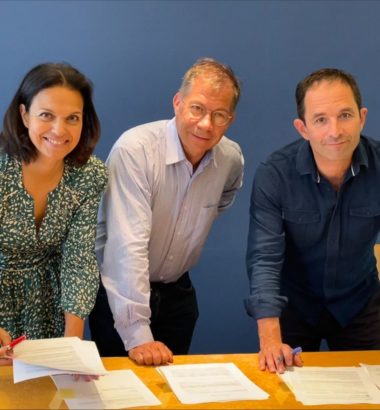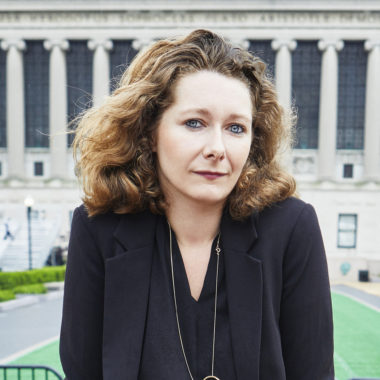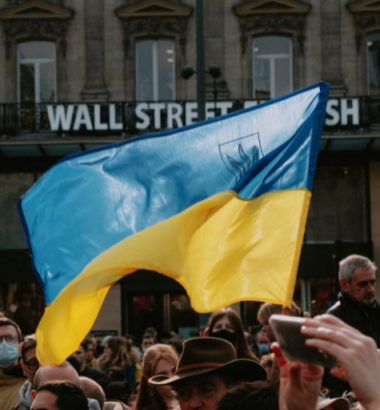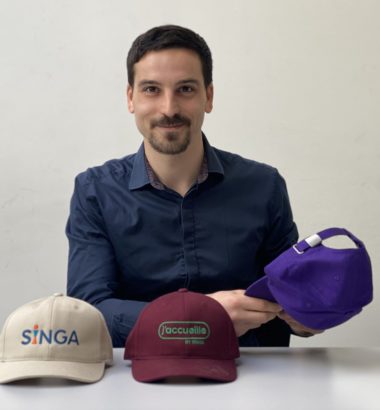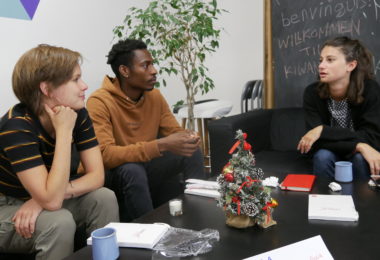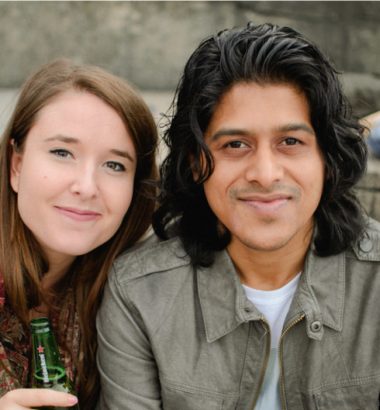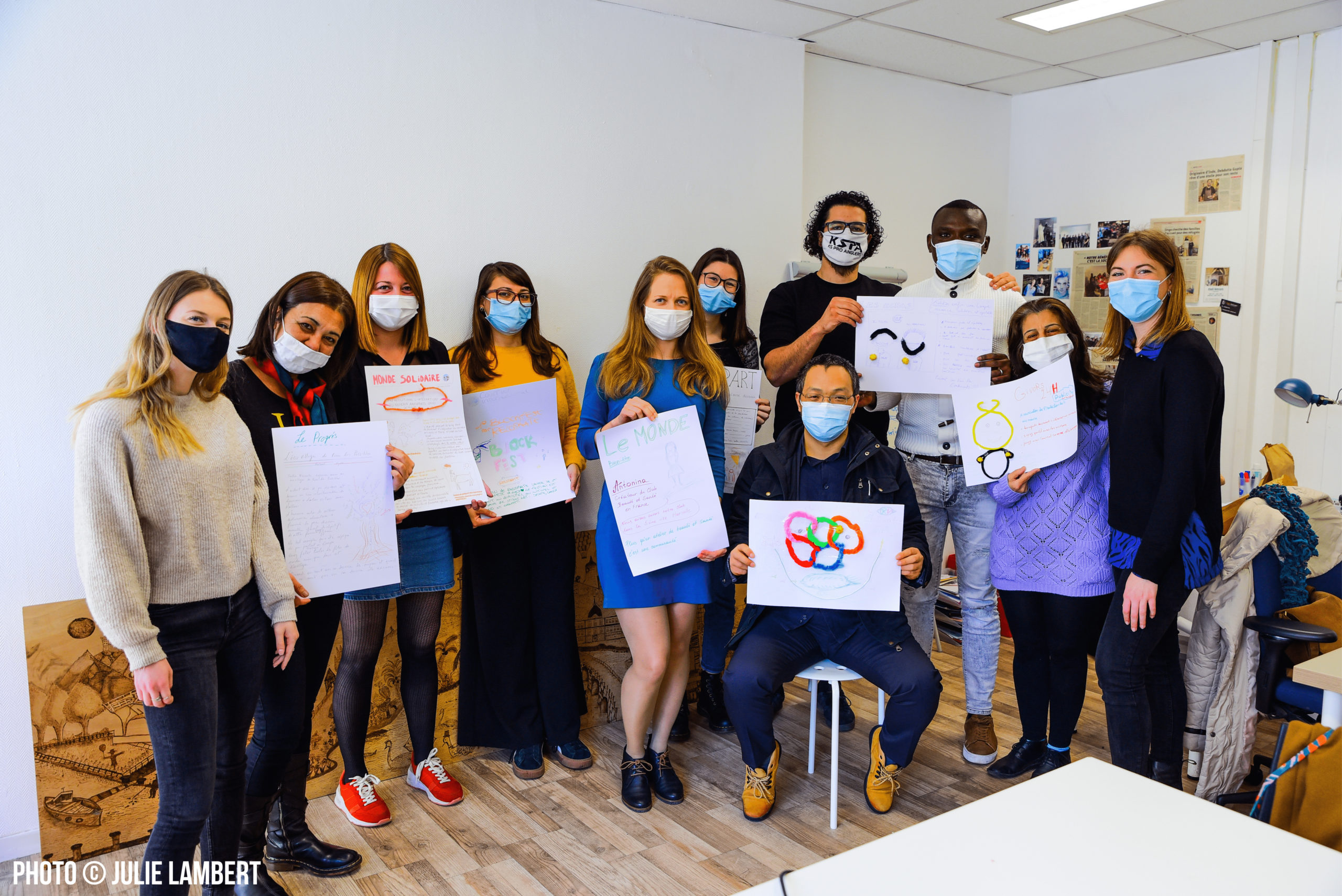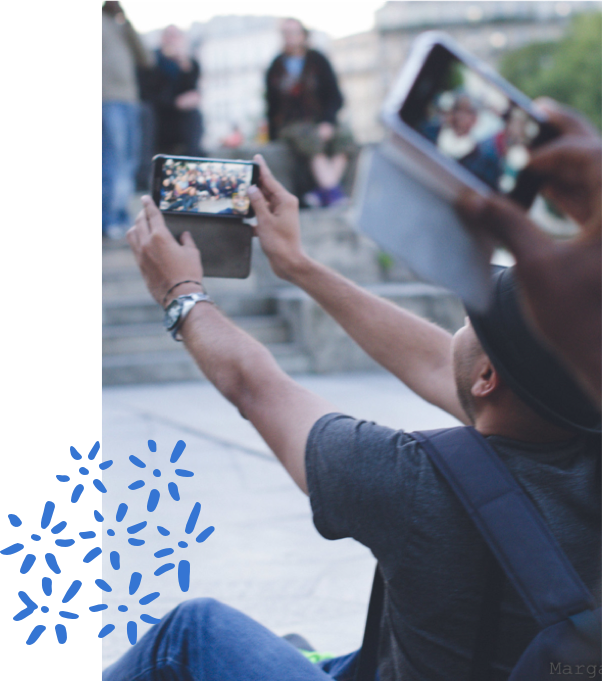Migration | March 23rd, 2022
Share this
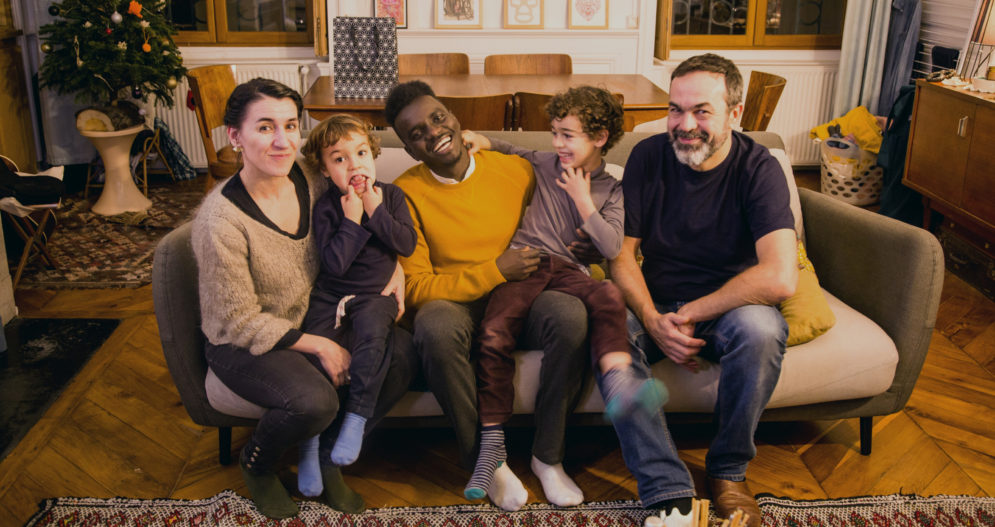
For the past few weeks, in solidarity with people fleeing Ukraine, many citizens have been volunteering to host displaced individuals in their homes and an increasing number of initiatives have been launched throughout Europe. If citizen hosting can be a useful temporary solution, it is important to follow certain recommendations and to be accompanied by referenced associations on the subject in order to host in the best conditions.
Meet Vincent Berne, Director of the J’accueille.fr program, and David Robert, Director of SINGA France.
How does “J’accueille” SINGA’s citizen hosting program work?
Vincent Berne – J’accueille is a platform for hosting refugees in private homes launched in 2015. This program allows citizens who have a spare room for a few months to host refugee people without housing solutions so that they can focus on the essentials (resuming their studies, finding a job, and housing). Launched in the Paris region, this program quickly reached Lyon, Montpellier, and Toulouse and has already welcomed more than 700 people. A similar program is also present in Brussels, where SINGA Belgium is helping to form roommates between Brussels residents and refugee people.
How did this program start?
David Robert – At the beginning of SINGA, back in 2013, we conducted an international study in more than 15 countries to identify and analyze innovations on asylum and migration around the world. Guillaume Capelle, the founder of SINGA, spotted a homestay platform in Australia that he found particularly interesting and innovative. The founders decided to create the first hackathon on asylum in January 2015 with the HCR Innovation, Simplon, Makesense, and the Maison des Sciences de l’Homme. It was during this hackathon that the idea of a hosting platform was born. The J’accueille platform (then named CALM – for Comme À la Maison) was launched at the time of the Syrian crisis, and our platform saw an unprecedented number of registrations at the time of the tragic death of little Alan Kurdi, in September 2015.
With this solution, we wanted above all, to build an infrastructure that would allow us to easily react to crises, conflicts, and climate change. We wanted societies to be better prepared for these population movements in order to better organize them and, above all, in conditions that promote inclusion.
We have put in place a solution that adapts to newcomers so that they can more easily find housing and build lasting relationships with local people.
The goal of the program is to allow any person in need or wishing to do so (following an asylum application where he/she must be taken care of by the national reception system), to be able to rest and put him/herself in a framework favorable to meeting locals and having opportunities for personal development. This is why we prefer to talk about citizen reception rather than citizen accommodation.
Where does citizen accommodation stand today for exiled people fleeing Ukraine?
DR – In the short term, civic housing is one of many ways to meet the needs of exiled people. The rooms available and made available will always be smaller than gymnasiums or hotels, and are more complex to identify than shelters. On the other hand, they are a medium-term solution, different from emergency accommodation, which remains the majority solution. Citizen accommodation is a temporary solution and is limited from a quantitative point of view. It is still in the minority today, but given the situation, it is a solution that is essential in order to be able to accommodate a maximum number of people in dignified conditions.
At SINGA, we set up a medium-term citizen reception, in order to create a social bond that facilitates inclusion. Welcoming citizens has the power to make a society stronger, and our program does everything possible to make this happen.
How can SINGA’s citizen reception accelerate the inclusion of exiled people?
VB – The offer of temporary accommodation proposed by the state, especially in shelters, cannot meet the needs of inclusion and social connections for newcomers after the initial emergency. For the vast majority, these are social services, globally well organized, which then lead to social housing. A global system that allows the person to have, in the majority of cases, a roof over their head and acceptable hygiene conditions, but which poses problems such as a precariousness aggravated by the relative isolation of people, a population that has no space to meet, discover, and open up to others as well as to the host society. In a shelter, you don’t meet people from the host society. It is then very difficult to access sociocultural codes, language, and therefore to feel part of the society.
We wanted to create a homestay program that could meet this challenge, ideally around the exit of a shelter, which would allow displaced individuals to recreate a social circle, something so precious when one first arrives in a new country. The other challenge is to change locals’ perceptions of refugees. Welcoming people into one’s home is a way to meet, understand, and enrich each other’s lives.
To increase the chances of creating a bond and deep interactions, we also do our best to bring people together who have common expectations and interests.
It takes about 10 years for an exiled person to feel truly “local.” Our goal is to reduce this time. Through encounters, in a caring environment that encourages opportunities, it becomes possible to reveal one’s potential and find one’s place more quickly.
What are the risks and the conditions for the success of the citizen’s shelter?
VB – We are very happy with the solidarity of Europeans over the last few weeks. The number of registrations to host is constantly increasing. We also see a lot of citizens trying to host their homes or even the creation of new platforms to help with housing.
Nevertheless, we think it is important to remember that hosting exiled people cannot be improvised. After more than 7 years of experience, we know that if certain conditions are not met, these hasty accommodations can cause delicate situations for both the hosts and the hosted.
With J’accueille, we set up different actions to maximize the opportunity to foster success, such as ensuring that privacy is respected for hosts and guests, that the families align with cohabitation in order to establish common rules, that each host and welcomed individual are educated, that a specialized external person is identified to take care of administrative procedures so that co-living relations are not compromised, and that a constant link is kept with the host and individual welcomed before and for the duration of the hosting.
Furthermore, if locals are already welcoming people who have fled Ukraine autonomously, we invite them to get in touch with expert organizations that can accompany them. This will help ensure that all the conditions for successful co-living will be put in place. Administrative support by a mandated professional for the individual being hosted is helpful, as it relieves the host of complex work. These professionals will also be able to take charge of the procedures for access to care, health, and school registration for the children.
Your reception platform is only open to people who already have refugee status, not asylum seekers. Why is this? What about people fleeing from Ukraine?
DR – We wanted to offer this type of accommodation only to people who already have refugee status for several reasons. Firstly, people seeking asylum are covered by the national reception system run by the state, which has been undertaken via the Geneva Convention in order to provide for the needs of people during this procedure. We, therefore, do not intervene at this time. However, once they have been granted international protection, the people accommodated in the national reception system (except for the most vulnerable people who can integrate to temporary accommodation centers also known as CPH) must leave the accommodation centers reserved for asylum seekers, without necessarily having found a housing solution.
It is therefore this moment of transition, where you have to find accommodation or housing when you have been made vulnerable by a difficult migratory and administrative path, where we play a real role with this program.
Furthermore, in the situation of asylum seekers, the conditions of reception in France do not allow people to live peacefully, both on the side of the host and the individual being welcomed. On the side of the asylum seekers, their future prospects are dependent on a decision by the OFPRA and the conditions are not in place for peaceful cohabitation.
In addition, if the person being hosted is applying for asylum and is rejected during the reception process, after a certain amount of time, the host may find themselves in difficulty because few exit solutions are possible for the person being hosted. Our purpose here is not to comment on this legal situation, which some of our colleagues, who are specialists in short-term citizen accommodation, know well. But to explain why a recognized long-term program with a strong social impact focuses on people already receiving international protection.
As for the exiles fleeing Ukraine, Europe has voted to grant them temporary protection, which allows them to have immediate access to work, health care, and education. They can therefore be welcomed because they do not go through this complex and uncertain period. We hope that this legitimate and appropriate initiative of the European Union can be extended to all those who are fleeing conflicts.
What are the results of your program?
VB – Created in Paris, it quickly arrived in Lyon, Montpellier, Toulouse, and Brussels and has already welcomed over 700 people. The social impact of J’accueille is significant: 71.5% of people find a suitable housing solution after the program; 45.3% are in employment (compared to 13.1% at the beginning); 42.4% have taken a training course or returned to school (compared to 27% at the beginning). J’accueille undoubtedly accelerates the inclusion of newcomers.
How do you plan to develop this program in Europe and in particular, in the countries bordering Ukraine?
DR – Our goal was to open the program in Marseille, Nantes, Bordeaux, Rennes, and Grenoble in 2022. We are now doing so as of April in order to respond quickly to current needs, in conjunction with the cities and the State, and to allow the reception of a maximum number of people. This need concerns people arriving from Ukraine, but also all refugees without housing solutions who are already on French territory.
Internationally and specifically for the countries bordering Ukraine that express the need, we put all our methodology in “open source.” We are opening our expertise and methodology to all actors who request it in Poland, Hungary, Slovakia, Romania, and Moldavia. As of next week, we are going to train organizations on the ground.
Citizen hosting is a powerful solution that can be mobilized quickly. Having developed valuable experience on this subject, it seems important to us to transmit it to any local organization wishing to accompany citizens of their country in this process that have not already benefited from this expertise. Sharing our methods allows us to support short-term reception and the reception of people we do not cover (asylum seekers and other exiled people who are not refugees) so that it goes as smoothly as possible. Because this reception is critical in crisis phases such as those we have been experiencing in recent years like Sudan, Syria, Iraq, Afghanistan, and now in Ukraine.
In addition, we have been working with the French government for nearly 3 years to prepare a Social Impact Contract, which would allow us to extend the impact of homestays on a national scale, notably by making our system available in the 40 largest French cities. We hope that this long-term work will be particularly useful in this tragic situation.
If I want to support your project or host, how does it work?
VB – You can support the program by making a donation to allow us to maximize organizing hostings during this period.
If you have a room available for a few months, you can sign up for an informational meeting to learn all about this program. It’s free and non-binding: www.jaccueille.fr
If you would like to launch a citizen hosting program outside of France, we continue to identify associations and social enterprises in Poland, Hungary, Slovakia, Romania, and Moldavia that would have the capacity to launch a citizen hosting program for refugees. Contact us: info@jaccueille.fr
Interview by Myriam Nouicer, Head of Communication, SINGA Global




